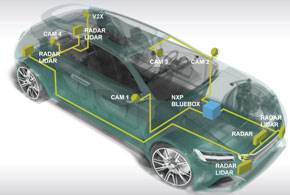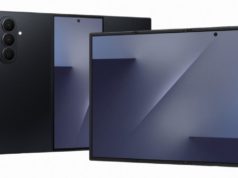As processor makers expand into emerging markets, such as autonomous cars and IoT, they’re looking to add to the features in their chips.
NXP Semiconductors is getting a lot of attention these days.
Late last month, reports surfaced that Qualcomm, the top mobile chip vendor in the world, was in talks to buy the semiconductor maker for as much as $30 billion, a move that would essentially put Qualcomm behind Intel as the second largest processor company.
A week later, there were other reports that Intel and Texas Instruments also were looking at buying NXP, a company itself almost a year after buying Freescale Semiconductor for about $12 billion, part of a larger consolidation trend within the processor industry.
This past week brought a new report from Bloomberg that after speculation about Intel and Texas Instruments, Qualcomm was the only company still in negotiations with NXP and that the two companies were moving toward an agreement. Citing unnamed sources “with knowledge of the matter,” Bloomberg said NXP executives were looking for a per-share price of around $120, while their counterparts at Qualcomm were targeting about $110 per share, giving the deal a price of about $35 billion.
The sources said the two sides were coming closer together in their demands, an indication that both were pushing to get the deal done. NXP has been working with Qatalyst Partners in its efforts to find a buyer.
There’s been no lack of acquisition activity in the chip market over the past two years as vendors have looked to move beyond such legacy spaces as PCs and mobile devices to push into such emerging markets as the internet of things (IoT), autonomous vehicles, virtual reality and augmented reality, and data center systems, from servers, storage appliances and networking gear to converged and hyperconverged solutions.
That was the driver behind NXP buying Freescale, a move that created a $10 billion company and gave NXP a larger presence in such markets as the IoT, general-purpose microcontrollers (MCUs), smart cities and automotive IT.
“The car industry is clearly changing in the next five to 10 years, much more than it’s changed in the last 50 years,” Kurt Sievers, executive vice president and general manager of NXP’s automotive business, said after the deal closed in December 2015. “In combination, we are a powerhouse in the automotive industry. … We will make cars sense, think and act.”
That makes NXP a target for other chip makers, according to Patrick Moorhead, principal analyst with Moor Insights and Strategy.
“What’s attractive about in NXP in a situation like this is they have a lot of paying customers in areas of interest that a lot of other people don’t,” Moorhead told eWEEK.
There not only is the automotive IT space, but also in mobile, where its Bluetooth technology is in the Apple iPhone, Near Field Communication (NFC) and sensors, he said. Qualcomm is making a strong push into the autonomous vehicle market, and would like to add NFC capabilities to its networking portfolio, which includes LTE and WiFi. A deal for NXP also would add to the chip maker’s bill of materials (BOM) in smartphones.
Qualcomm is seeing tablet sales fall and smartphone revenues slow as the market matures, and officials are moving the company in a range of new areas, including self-driving cars, drones, servers, artificial intelligence and the IoT, a space that promises to dwarf mobile devices. Qualcomm in 2014 bought British chip maker CSR for $2.5 billion to strengthen its position in the IoT.
“A billion smartphones is great, but tens of billions of IoT things is really great,” Moorhead said.







